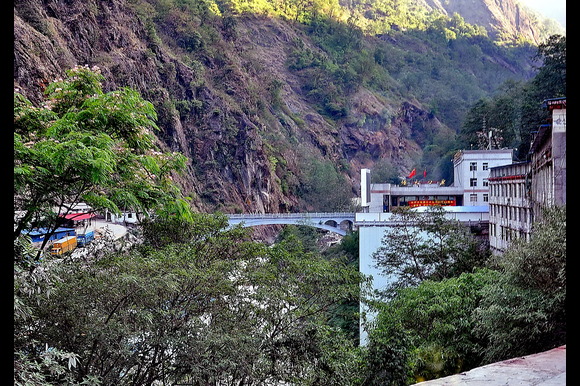
Image by Profit Pakistan
Pakistan Tehreek-i-Insaf (PTI), after taking the reins of power a year ago, embarked upon an ambitious drive against corruption in all the sectors of governance, particularly the banking channels or financial sector and the real estate. The sitting government gave green signal to go after the black sheep – those who syphoned off public money and put Pakistan’s economic stability at risk. One of such channels for making illegitimate money is through ‘benami’ properties – incognito properties – or transactions which has also hit the radars of power corridors. Though, it seems that the sitting government is sinking into the bog of elite capture in this regard. There are road-blocks every now and then. To infiltrate the whole machinery erected by the elites including corrupt bureaucrats and politicians, seems to be harder than expected.
Benami Law
The Federal Board of Revenue (FBR), lately, has enforced the Benami Transactions Act (Prohibition) Rules, 2019. It is pertinent to note that the parliament approved the law in January 2017 and the president gave his stamp of approval in the following month; but for over two years, bureaucrats and politicians delayed application of the law on flimsy grounds. Nonetheless, the law would be considered effective from February 2017. Any benami asset that was created after February 2017 or was in the name of the person at that point would be treated as a Benami asset and would be prone to confiscation. Officials of the Inland Revenue Service have been assigned the duty to establish cases against benami properties and submit a challan to the adjudication authority within 120 working days. During this period, the sale, purchase and transfer of such property has been banned till further orders.
What comes under Benami?
FBR, recently, also explained what a benami transaction or property is. A benami transaction is when a property is transferred to, or is held by, a person but it has been paid for by another person – a trustee and wife, child, brother or sister. A transaction or arrangement of a property made in a fictitious name, or a transaction or arrangement of a property where the owner is not aware of, or denies knowledge of, such ownership. A transaction or arrangement of a property where the person providing the consideration is not traceable or is fictitious.
The potential types of properties include plots, houses, shopping plazas, shops, housing schemes, bank accounts, vehicles, business shares, jewelry, foreign currency, legal documents and intangible properties, having financial value. Furthermore, if the crime of benami transaction is proved, criminal proceedings will be initiated against accused persons and where proven guilty, rigorous imprisonment of one to seven years can be awarded. Correspondingly, persons providing false and baseless information can also be sentenced to rigorous imprisonment of six months to five years.
The implementation of Benami Transactions Prohibition Act would probably ring alarm bells, as assets held in names of family members, but created through inexplicable sources of income, will also be treated as benami transactions. The law also covers offshore assets, provided the owners are Pakistanis and the offshore assets are made by transferring money from Pakistan.
Whistle-blow incentive mechanism plugged in
In addition to that, an incentive mechanism has also been plugged in for the whistle-blowers. Under the law, the whistle-blowers would pocket a cash reward for providing credible information paving way for uncovering a benami property or transaction. If property is worth PKR 2,000,000 or less, 5% of price of the property will be given to informer. If property’s worth is more than PKR 2,000,000, 4% will be given to informer and where the value of property is more than PKR 5,000,000, 3% will be given to informer.
Tackling grey economy
The primary objective of the benami law enforcement is to deal with the problem of tax evasion and black money, specifically in the real estate sector. It also serves to ensure that the ultimate beneficial owner and persons who assist or persuade any person to undertake benami transactions suffer severe punishment. The law would also enable tax authorities to seize benami property, including the proceeds from such a property, and to prosecute those indulging in grey activities; to bring unaccounted for money into the system; to shut down channels for the flow of illicit funds, whether proceeds of crime or financing of terror activities; and to restore the credibility of Pakistan’s financial system.
Will Benami Law bear any fruit?
However, PTI government’s much trumpeted drive against benami asset holders confronted a serious setback in the first three months of the current year due to lackluster response from the provinces. The deadline for getting the information from the provinces was set at September 30, which was largely missed.
Prime Minister Imran Khan has directed the provincial governments in a letter sent on August 28 to provide the data. The government also established a dedicated Directorate General of Anti-Benami Initiative (ABI) on July 01, for the purpose. In compliance to the prime minister order, the provincial governments are supposed to ask deputy commissioners (DCs) for the identification of benami properties in their jurisdiction. In Khyber Pakhtunkhwa, only two DCs have identified 29 properties – 27 in Peshawar and 02 in Tank. Quite surprisingly, the remaining DCs have submitted nil reports. From Punjab, the response is even more pathetic as the province has sought extension in the deadline. The only DC from Punjab who has identified 25 benami properties is from Multan. Similarly, from Sindh, only three of the 29 DCs have provided ‘partial’ data while no response has been received from Balochistan. It is feared that the lack of cooperation from the provinces may hamper the drive against benami assets holders.
Hence, it appears improbable that a major dramatic breakthrough regarding corruption can be witnessed during the current term, except for the moderate accomplishment in a few high-profile cases. Nonetheless, despite the skepticism, it should not be forgotten that at the start of the Panama Papers trial people were just as skeptical, but PM Khan does not give up easily. Having said that, PM Khan should not give the impression of selective accountability and rather also single out the black sheep within his own ranks that are pulling him back from making any bold moves regarding corruption and nepotism.



